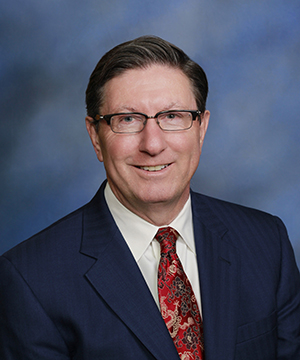
Dr. Allen Bowling is a neurologist, multiple sclerosis (MS) specialist, and integrative medicine pioneer based in Denver, Colorado. For more than 30 years, he has been passionate about providing care to people with MS and has been involved in research related to nutrition, dietary supplements, and other non-pharmacologic therapies, including cannabis-based medicines. Dr. Bowling is currently director of the NeuroHealth Institute in Englewood, Colorado.
Covering Cannabinoids spoke to Dr. Bowling about how best to ensure both healthcare providers and patients are aware of the benefits and risks of cannabis-based therapy use given the limited number of medicines that have been studied in placebo-controlled, randomized trials and advanced through the U.S. Food and Drug Administration (FDA) approval process.
Q. What educational resources do you provide to inform a person with MS about cannabis-based treatment options?
A. In addition to a short discussion of benefits and risks, I also provide a Cannabis Information Sheet that I created based upon my own research and clinical experience. This evidence-based information is modeled after the “Prescribing Information” required of FDA-approved medications. When it comes to cannabis-based treatment options for MS, there currently are no products FDA-approved. But I have a duty as a physician to inform my patients of both the benefits and risks given the availability of medical and recreational cannabis in some states. This role is extremely important because published studies and clinical experience indicate that patients as well as some healthcare providers are very poorly informed about the risks of cannabis, especially when used for serious medical conditions and in combination with other medications.
Q. Given your experience, what is needed to better educate and empower physicians and patients to make choices about cannabis-based therapies?
A. In my opinion, there need to be laws requiring cannabis information materials readily available to physicians and patients by state governments. Because the state governments are overseeing dispensaries at this time, the responsibility is on them right now. This information could be provided with all cannabis products that are sold at dispensaries similar to the information provided with prescription drugs at a pharmacy. Until there is federal oversight, this would be similar to the process that has been followed for decades for FDA-approved medications.
Q. As a healthcare provider, what resources do you turn to in order to stay abreast of cannabis-based therapies?
A. This is extremely difficult because there is a desperate need for more placebo-controlled, randomized clinical research and resources such as the Cannabinoid Clinical website. There is also a need for resources that are tailored to specific clinical areas such as MS or epilepsy. This type of focused content would help healthcare providers and guide clinical treatment decisions.
For my approach to patient care, I update my information sheet every six months to ensure the timeliness of data and guidance. But right now, this means that I do extensive reviews of research on my own to be certain that the information is accurate and current.
Q. What is the biggest concern you currently have as a physician experienced with cannabis-based therapies for your patients?
A. Based on multiple published studies and my own experience, I am very concerned that cannabis is being used by people who are poorly informed about the benefits and risks. Part of this is because cannabis is not well understood by physicians and thus is not being discussed appropriately with patients. I have seen multiple adverse effects of cannabis that have not been recognized by other physicians and that can put patients with serious medical conditions at risk.
Q. How can this misinformation or lack of information be addressed?
A. As noted before, until there is federal oversight of cannabis-based products that are not FDA approved, there need to be laws requiring information be provided to patients and physicians about its use. At this time, it would be driven by the states that have legalized medical and even recreational marijuana use.
Q. To your point, following the 2020 elections many states have now legalized medical marijuana and some may say legislators are making medical decisions. How do you ensure patient safety when there is a lack of standards, regulation and purity for medical marijuana and other non-FDA approved cannabis-based therapies?
A. As physicians, we should at the very least advocate for laws requiring information to be made available to healthcare providers who recommend, and patients who use, medical marijuana. This is no different than what is required of FDA-approved drugs and the prescribing and important safety information included with product packaging. This information must also highlight the lack of standards, regulations, and purity in the manufacturing of cannabis-based products because there is misunderstanding about how medical cannabis in particular is regulated. The reality is right now medical marijuana and CBD products are not regulated like prescription medicines unless they have gone through the FDA process.

